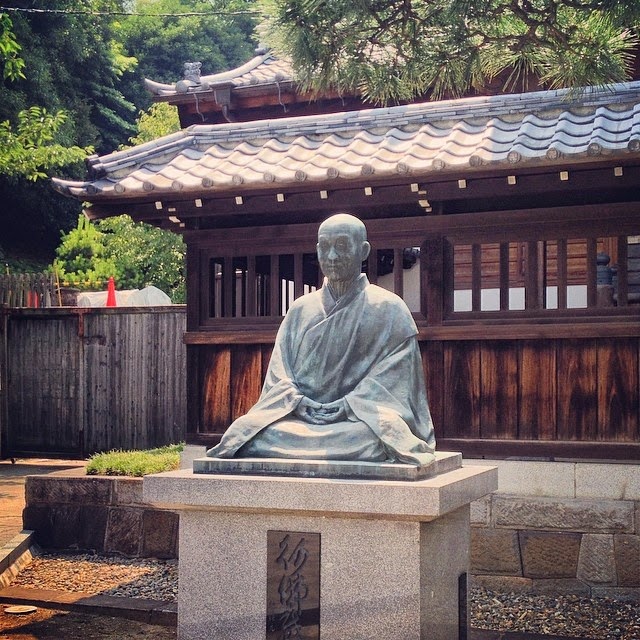Kodo Sawaki - Japan's "homeless" Zen Buddhist priest
- Published on : 06/08/2014
- by : Japan Experience
- Youtube
Kodo Sawaki: One of the twentieth century's most prominent practitioners of Soto Zen in Japan was the priest Kodo Sawaki (1880-1965).
Kodo Sawaki 澤木興道
The Soto school of Zen Buddhism is the major branch of three in Japan, the other two being Rinzai Zen and Obaku Zen. Soto is distinguished by a very free type of meditation that purposely sets itself no focus. Soto Zen derives from the Chinese Chan Buddhist sect, the Caodong school, founded in the 9th century by Dongshan Liangjie (807-869), and introduced to Japan by the Japanese priest Dogen (1200–1253) in the 13th century. One of the twentieth century's most prominent practitioners of Soto Zen in Japan was the priest Kodo Sawaki (1880-1965).
Kodo Sawaki statue in Sengakuji Temple, Tokyo
I encountered Sawaki while writing a guide to Sengakuji Temple in Tokyo. While Sengakuji's main reputation is as the burial place of the 47 Ronin, it is a Soto Zen temple, and has had a bronze statue of the Zen scholar, Kodo Sawaki, there since 1988.
Life
Kodo Sawaki was born in the city of Tsu, Mie prefecture, and grew up in difficult circumstances, raised by a gambler of an uncle after his father died while Kodo was only 7 - his mother already having died when he was 3. The uncle himself died when Kodo was a teenager, leaving him on his own in the world. Sawaki was drafted to the Russo-Japanese War of 1904-1905. He then became a Zen teacher and by his 50's was teaching religion at Komazawa University. He acceded to management of a temple in Kyoto, Antaiji, in 1949, but did not settle down there. Rather he remained more or less peripatetic, traveling throughout Japan and overseas on teaching missions.This was something of a break with tradition, and although he did have a regular abode, earned him the epithet "Homeless Koto." Kodo Sawaki's lectures and writings were published throughout his lifetime and are still widely available. He was widely influential, and mentored at least two priests who spread his teachings in the West, and several more active in Japan. Sawaki's style of Zen meditation was purely Zen for Zen's sake, and a famous quote of his is that "Zen is simply sitting there, not for the sake of this, that or anything." Sawaki's body was donated to science after he died.










